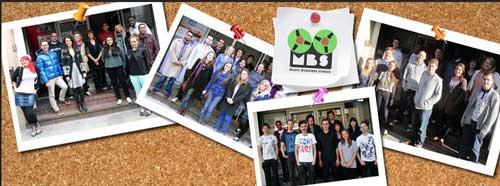Getting your music onto radio is a clearly defined target for most artists when they are preparing for the release of a single or EP. We all know that the competition for airtime is tough but are there things that you can do to give your new release a better chance of hitting the airwaves?
In this article we speak to 2 professionals who seek promotion to radio from different perspectives. Mark Muggeridge owns and runs Evil Genius Media, a full service music marketing company that promotes music to radio on behalf of their clients – a service known as radio plugging; and James Bursey, the producer of Zane Lowe’s Radio 1 show which receives hundreds of tracks each week for consideration to be included in the programme.
"When I am promoting a new artist to radio for the first time I like to start by sending the track to either regional radio or to shows that play new artists at around 6-8 weeks prior to release." says Mark Muggeridge. "I am trying to get my first one or two spins of the track along with a quote from the DJ before I go into the main part of my promotion to radio. Once I’ve got these, then I’m revising my press release to include a mention of these and I’m onto going out wider with the track and the new press release.
Although digital is great it’s also important to have physical CDs and a printed press release. A lot of radio shows will only accept a CD promo. Can you imagine having to download hundreds of MP3s every week just to listen to them once? It’s a nightmare for some radio staff and it’s really still just so much simpler for them to organise physical CDs when they are working out what to play each week. This said It’s also important to know which shows prefer a CD and which shows want digital. The Unsigned Guide is great for that kind of information."
"Unsigned artists often have to do a lot for themselves and this is a burden than slows things down, but by running a smaller campaign and only sending your music to those shows that you are confident play new music by new artists you can help keep your costs down and chew up less of your time than sending a hundred promos." says Muggeridge. "Also when I am writing the press release to go to shows like John Kennedy or Tom Robinson I’m careful not to overstate what an artist has achieved to date. I see a lot of press releases from unsigned artists that try to convince me that their last EP ‘was a massive break-through…’ or their last single was ‘hugely supported’ by a particular radio station when in fact they only received one play. People who work in radio will read between the lines; everyone has to start somewhere and clearly stating that you had a play from or were ‘supported’ by a particular show helps us all to know where you are up to in developing your audience and how we can help you further."
James Bursey is the producer of Zane Lowe’s show on Radio 1. "When you’re first sending tracks to us at Radio 1 it will take us a little time to get to know you. We sometimes talk in terms of a new artists’ journey."
That journey should begin at a local level via the BBC Introducing uploader. "This is a great way to get our attention at BBC Radio. It’s surprising how many artists don’t use this path to get music to us when we are always listening to tracks that have been uploaded. Once you’ve been played on your local Introducing Show then your next target should be the shows that are on air from midnight to 4am, from there the shows that are on air from 10pm to midnight." explains Bursey. "In terms of how to send us music, using a plugger is a great idea as they are a trusted source for us to find new music. However if you want to DIY sending your music to radio then send us tracks via a streaming service, such as SoundCloud so we can have a listen; then also give us a download link so that if we like the music we can grab the MP3 or WAV file. The important thing here is that for a first listen we don’t want to download or sign in to anything. It has to be click and play."
Mark Muggeridge and James Bursey both give presentations as part of the Guest Presenter Programme at The Music Business School MMBE course in London. The MMBE (Managing a Music Business Enterprise ) is a new accredited qualification that offers participants a fast-track course of study to get them up and running in the music business. The guest speaker programme brings a unique roster of active music business executives into contact with the students via small group presentations. These sessions give students a chance to ask direct questions and connect with leading players from across the music business spectrum.
is now taking enrolments for their course commencing September 4th.
Tags
music business school, music industry training, music business, music qualification, steve mulheish, music courses, radio 1, radio airplay, zane lowe, james bursey, evil genius media







